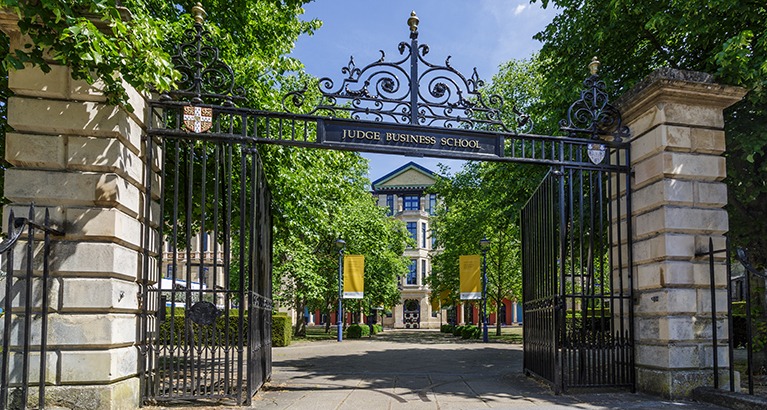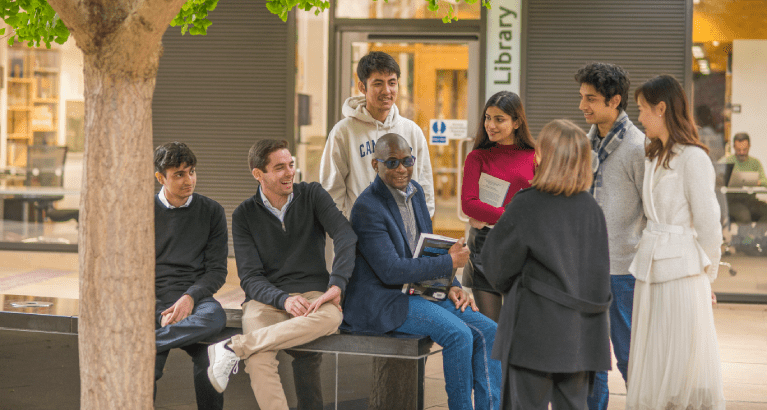At Cambridge Judge Business School our community of faculty and researchers are actively engaged with cutting-edge research across a wide range of interdisciplinary research centres and initiatives. These centres and initiatives – many of which are based at the Business School – play a key role in linking Cambridge research expertise with industry practitioners, business leaders and policy stakeholders.
As part of the MFin degree programme, students have the opportunity to work with these research centres, which span a wide range of business and finance related subject areas, including the Centre for Risk Studies, the Circular Economy Centre, the Centre for Endowment Asset Management and the Cambridge Centre for Alternative Finance, to name a few.
Close ties with the research centres
Marwa Hammam, Co-Director of the MFin degree programme, shares some insights on how the programme’s close ties with the research centres can enrich the students’ learning journey. “MFin students can actively engage with the Cambridge Centre for Alternative Finance (CCAF) via project work and participation in their global internship programme. Some students have also made valuable contributions to benchmarking studies and the groundbreaking Regulatory Genome Project (RGP) sponsored by the wider University.”
Marwa explains that the programme’s links with the research centres offers students the chance to collaborate with faculty and researchers in their chosen field or area of interest. “Such practical experiences showcase the MFin programme’s commitment to fostering the industry–academic partnerships that drive innovation and contribute to the advancement of knowledge in the field of finance, providing students with hands on experience and the chance to contribute to cutting edge research initiatives. Our students and alumni particularly value the opportunity to make a meaningful contribution in their field via these collaborations with the research centres.”
We spoke to 3 MFin students as they were about to complete their MFin degree, to find out about their own experience of working with the research centres during the programme.
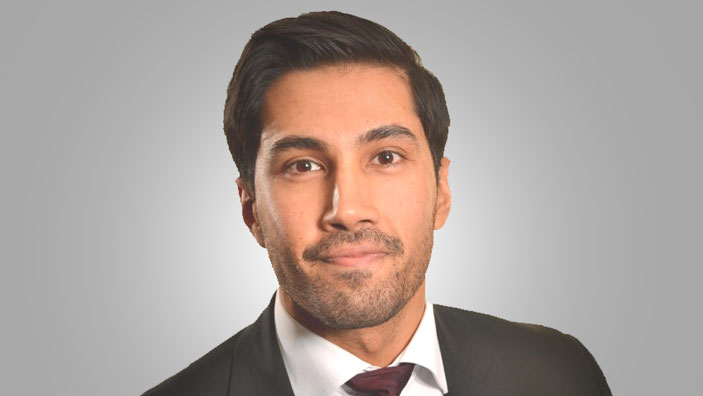
Hassan Aslam (MFin 2022/23)
Cambridge Centre for Alternative Finance (CCAF)
How did you first get involved with the Cambridge Centre for Alternative Finance (CCAF)?
My journey with CCAF began when I recognised the incredible scope of their work in studying alternative finance and its tangible real-world implications. The CCAF focuses on researching financial channels and instruments that operate outside the conventional financial system. The centre’s interdisciplinary and rigorous research piqued my interest and I saw an opportunity to contribute meaningfully.
Can you share a bit about the project or research that you have been doing with the centre?
A. The project I have been engaged in pertains to the growth and strategy of the CCAF itself. Specifically, my team and I were tasked with identifying, researching and prioritising approaches to expand the CCAF’s research programs globally and engage with key stakeholders in crucial jurisdictions. This project aimed to scale the CCAF’s Digital Assets Programme while ensuring its continuity to serve the financial and regulatory sector. I was able to collaborate with CJBS finance faculty and external practitioners who are experts in the field of alternative finance, such as Blockchain, DeFi, CeFi and emerging payment channels.
Is this a new field of research for you and has the project you have been working on helped you with your next career move?
This exposure greatly enriched my understanding of the subject and is far from ephemeral, resulting in an indelible learning experience. The work I have done at the CCAF taught me innovative research methods, application of data-driven approaches while focusing on real-world impact of alternative finance solutions. As I look into the future after the MFin programme, the project I’ve been involved in with CCAF will play a pivotal role in shaping my career path.
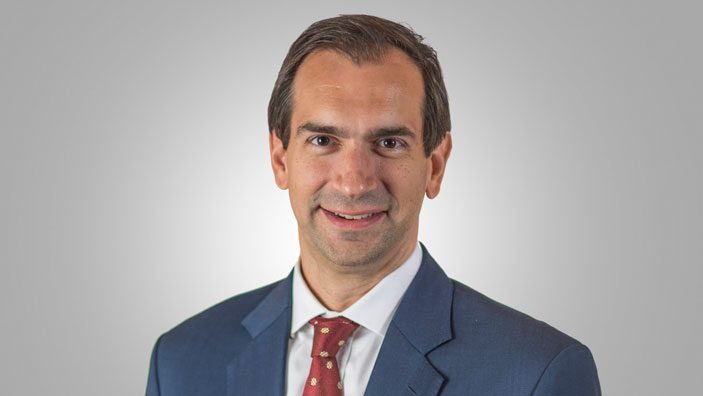
Tom Mosher (MFin 2022/23)
Cambridge Circular Economy Centre (CEC)
How did you first get involved with the centre and can you tell us about the research that you have been working on?
I became familiar with the work of Cambridge’s Circular Economy Centre (CEC) in Easter term and affiliated with them for the purpose of contributing to the research they are conducting at the intersection of circular economy and the internet of things (IoT). In this connection, I spent a month on secondment in the summer in Cyprus, collaborating with a partner technology firm who is developing technologies that will help to make digital communications networks more sustainable.
Is this a new field of research for you, or an area that you are interested in pursuing after your MFin?
A principal focus of my inquiry was the telecoms industry — a sector that stands to gain considerably from the trends in the IoT and AI. As a postgraduate in finance, I found it compelling to look at strategies that make sound commercial sense whilst also using resources more intelligently: to do well in a business sense and do good at the same time. This was an entirely new area for me, and one that I likely would not have been able to delve into so deeply, except with the University of Cambridge, Judge Business School and CEC calling cards.
What are your plans after completing the MFin, and has your work with the Circular Economy Centre helped you with your next career move?
The work provides an excellent bridge between my past career (practicing financial law for sovereign and corporate clients, including TMTs) and my future as an investor who wants to work for a more purposeful financial sector. And the most wonderful thing about the secondment was that it granted me an opportunity to meet other contacts from around Europe working on circular economy. I felt tangibly that my work was feeding into a larger collaborative project with coworkers from the local partner, from other universities around Europe, and from others in academia, private industry and government.
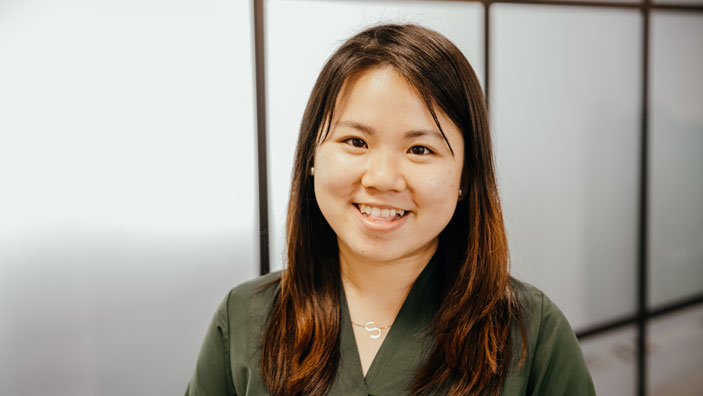
Sherin Tan (MFin 2022/23)
Cambridge Circular Economy Centre (CEC)
Which research centre have you been working with, and what does the centre do?
I have been working with the Circular Economy Centre (CEC). The centre carries out cutting-edge research exploring the opportunities for reimagining sustainable business models. The CEC navigates the intricacies within industries to present solutions for the elimination of traditional linear business models. Essentially, it helps transform the business model from a linear structure to circular one, where wastes are reused or repurposed as inputs.
Can you tell us about the project or research that you have been working on?
A. The EU-funded research project aims to explore the interplay between the Circular Economy-Internet of Things (CE-IoT) through an independent review on the current intersection at commercial entity level. I interviewed the stakeholders of the host company in Warsaw, Poland to identify and quantify the necessary resources, processes and structure that are required to accelerate the CE adoption in the mainstream business as usual (BAU). I observed cross-references that exist between the theory and practice, which can be extrapolated to multiple industries.
Is this a new field of research for you, or an area that you are interested in pursuing after your MFin?
A. Yes, it is a new field of research for me. The theoretical Circular Economy elective course piqued my curiosity on the CE implementation in relation to the manufacturing industry. The level of granularity that this research project offers has allowed me to peek into the infrastructure to make CE sustainable. Relative to its peers, such as climate finance, circular economy is still in its nascent stage of emergence within the sustainability taxonomy. Having said that, its huge potentials seem to offer a glimpse of an antidote to the resource constraint and waste toxicity that linear economy is causing.
What are your plans after completing the MFin, and has the project you have been working on helped you with your next career move?
From this research project, I drew the foundational knowledge and clarity that convince me of the urgent need to redesign existing linear business model into a circular one. Although I am realistic to know that the journey will not be a linear one (no pun intended), I cannot wait to see how the dots eventually connect. Currently, I am taking a few months to work in both software technology and climate research companies to deepen my credentials as an enabler of circular economy, especially from a financial analysis angle.
Related news and insights
Programme news
What to expect at your MFin interview
We know that your Master of Finance (MFin) interview can be a nerve-wracking experience, so in this article we share some advice on how to prepare for your interview.
Programme news
Introducing the scholars of the MFin 2025 class
We spoke to some of our MFin scholarship recipients about why they chose Cambridge, their experience receiving a scholarship, how it is helping them pursue their goals and the impact it will have on their careers.
Programme news
Meet the Cambridge MFin class of 2025
With the academic year now underway, we caught up with our current MFin students to understand why they chose the Cambridge MFin and what they’re hoping to achieve in the months ahead.


